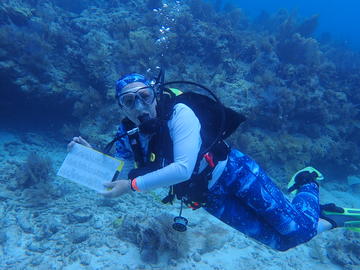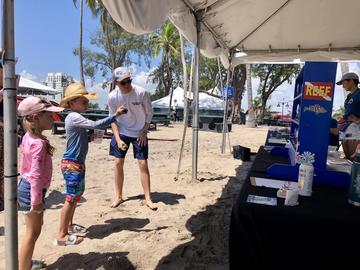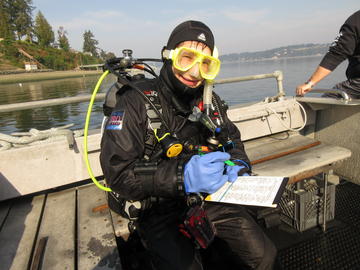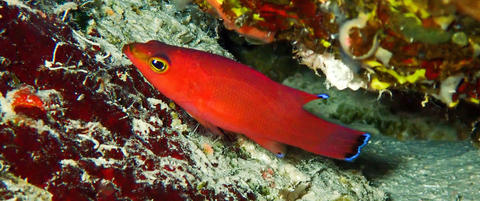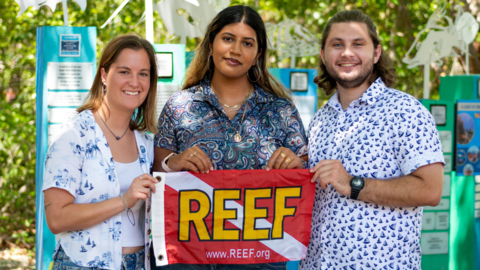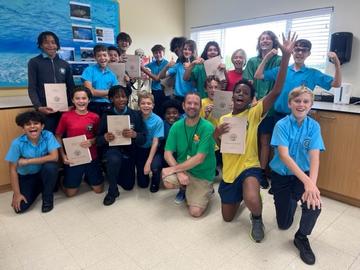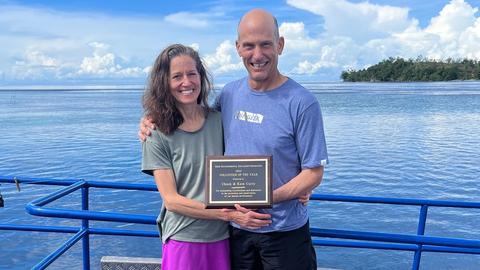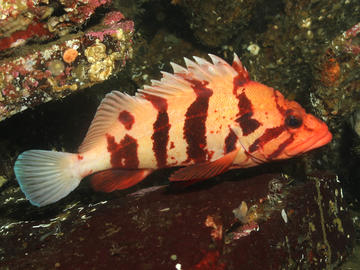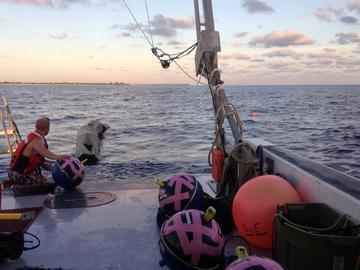REEF Field Survey Trips are eco-vacations led by marine life experts. Each trip features daily dives and fish ID classes for both beginners and experienced surveyors. If you're not a diver, snorkelers are also welcome! Visit www.REEF.org/trips for more details. To book your space, email trips@REEF.org. Check out some of our upcoming trips with open spaces, including:
REEF Ocean Explorers Education Programs: Highlighting Marine Conservation Through Community Outreach
Education is typically thought of as taking place in a classroom, but through the REEF Ocean Explorers Education Program, learning can happen in unexpected places - like music festivals, craft breweries, and art classes! As a Marine Conservation Intern last fall, and in my current role as Education & Outreach Fellow, I have many opportunities to participate in public education, community outreach, and events. Community outreach is important for REEF because it enables us to connect with a wide range of audiences, including different age groups, backgrounds, and interests.
The REEF Conservation Challenge is a fun way to earn collectible stickers while getting involved in marine conservation and citizen science. Did you know that you can participate in the Conservation Challenge by doing any of the following activities:
•Visiting the REEF Campus in Key Largo, Florida
• Watching a Fishinar
• Attending REEF Fest
• Sending us a photo of you wearing REEF swag
• Conducting a REEF survey in any region
• Attending a REEF Field Survey Trip
Get hooked on surveying fish by joining in the Great Annual Fish Count (GAFC)! Every July, divers and snorkelers from all over the world participate in this monthlong initiative to learn about marine fish identification and conducting REEF surveys. Individuals and groups can organize their own surveying or fish ID events, and some even add to the fun by incorporating raffles, cookouts, and more! If that sounds like a fun way to spend a summer day this July, check out the GAFC calendar to find an event near you.
REEF online programs are free and open to everyone! Here's what's coming up this month:
Fishinar: Fun Fishes to Look For in Roatan
Monday, June 19, 8pm EDT
Click here to register.
Roatan is home to some lesser-seen fish species, if you know where to look! Learn how to locate and identify some of the interesting species that can be found there.
We are excited to welcome our Summer 2023 Marine Conservation Interns to REEF! They will assist with education, outreach, events, and daily operations around the REEF Campus in Key Largo, Florida. Pictured from left to right are Carolyn Corley, Shalini Thinakaran, and Brian Chansky. Here's a bit more about them:
The Grouper Moon Project is a conservation science partnership between REEF, and the Cayman Islands Department of Environment (DoE), with scientists from Scripps Institution of Oceanography at UC San Diego and Oregon State University, aimed at studying endangered Nassau grouper, a social and ecological corner stone of Caribbean's coral reefs. In 2011, REEF and DoE created the Grouper Education Program, a suite of marine science lessons and activities to accompany the Grouper Moon Project.
We are thrilled to share that Chuck and Kara Curry are our 2022 REEF Volunteers of the Year. Chuck joined REEF in 2013, and Kara joined a few years later in 2016, after meeting Chuck during a dive trip to Cuba. Since then, they have both joined the ranks as some of the top surveyors for the REEF Volunteer Fish Survey Project. Collectively, they have submitted over 2,500 surveys in the VFSP database. In 2022 alone, they conducted 448 surveys. Unsurprisingly, Chuck and Kara have both achieved the coveted Golden Hamlet award for submitting over 1,000 surveys.
Meet our June Fish of the Month, the Tiger Rockfish, Sebastes nigrocinctus!
Survey Regions: Tiger Rockfish are found on the Pacific Coast of the USA and Canada, from Alaska to British Columbia and south to central California. Click here to see a sightings report for the Tiger Rockfish in the REEF database.
Size: They can grow to be about 2 feet in length.
We are excited to share the latest scientific paper from the Grouper Moon Project. The study, published last month in the journal Proceedings of the Royal Society B, addresses the question of where fertilized eggs go after being released by Nassau Grouper at their spawning site off the west end of Little Cayman. This study used state-of-the-art technology, including satelite-tracked drifters, an underwater microscope, and a glider to raise and lower the instruments.

